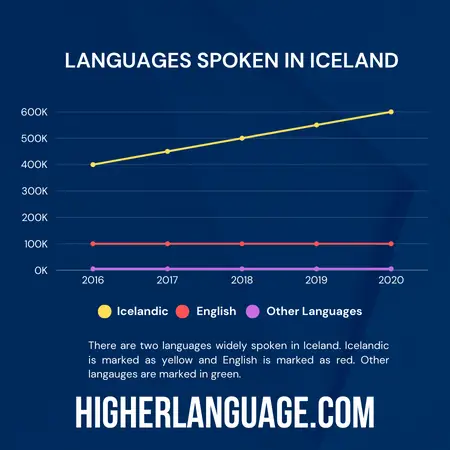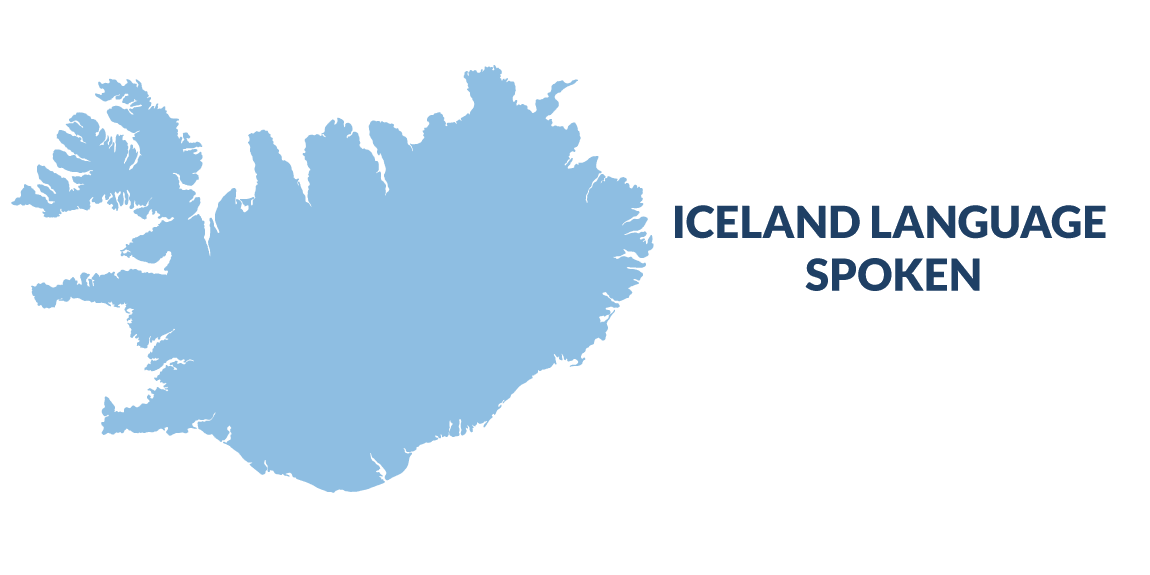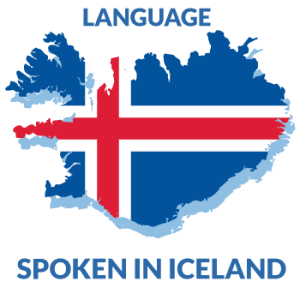What Language Do They Speak In Iceland? Unraveling Iceland's Unique Linguistic Tapestry
Iceland, the land of fire and ice, is renowned for its breathtaking landscapes, vibrant culture, and a language that seems to have defied the relentless march of time. If you've ever wondered about the linguistic landscape of this Nordic island nation, you're in for a fascinating journey. While seemingly isolated, Iceland's linguistic story is rich, featuring a dominant native tongue alongside a surprising mix of other languages.
The Heart of Icelandic Communication: Icelandic
At the very core of communication in Iceland is, unsurprisingly, Icelandic. This is the official language of the country, and it's spoken by an overwhelming majority of the population. Out of approximately 336,000 residents, at least 300,000, if not more, speak Icelandic as their primary language. This widespread usage is supported by an impressive statistic: Iceland boasts a 100 percent literacy rate, a testament to its strong educational system and commitment to its language.
A Language Frozen in Time
What makes Icelandic truly unique is its remarkable preservation. Icelandic is a North Germanic language, an Indo-European language with deep roots in Old Norse, the language spoken by the Vikings who first settled Iceland in the 12th century. Unlike its Scandinavian cousins, Swedish, Danish, and Norwegian, which have evolved significantly over centuries, Icelandic has remained largely unchanged. It's often described as a "frozen" language because its grammatical structure and vocabulary bear a striking resemblance to Old Norse.
This linguistic stability means that modern Icelanders can read ancient medieval texts, such as the famous Sagas, with relative ease, almost as if they were written yesterday. This incredible continuity offers a direct link to their ancestors and cultural heritage, a luxury few other nations can claim. The language is closely related to Faroese, spoken in the Faroe Islands, and to a lesser extent, Norwegian, but its independent evolution has kept it distinct.
A Glimpse into History: More Than Just One Language
While Iceland has historically been a very isolated and linguistically homogeneous island, it has, nevertheless, been home to several languages over time. For instance, historical records suggest that Gaelic was the native language to many of the early settlers who came from the British Isles, particularly Ireland and Scotland. This early linguistic diversity, though not dominant in the long run, highlights that even in its formative years, Iceland's linguistic tapestry had multiple threads.
Beyond Icelandic: Other Languages Spoken in Iceland
Despite the strong dominance of Icelandic, the country is far from monolingual, especially in modern times. Globalization, tourism, and immigration have introduced and popularized other languages, particularly English, which is widely spoken across the island.
English: The Lingua Franca for Visitors
For tourists and international visitors, navigating Iceland is remarkably easy, thanks to the widespread use of English. While Icelandic is the official language, English is taught in schools from an early age and is commonly used in business, tourism, and daily interactions. You'll find that most Icelanders, especially younger generations and those working in the service industry, are proficient in English, making communication seamless for non-Icelandic speakers.
The Growing Presence of Other European Languages
Beyond English, immigration has brought a noticeable presence of other languages to Iceland. The country has seen an increase in its foreign-born population, leading to a more diverse linguistic landscape. According to recent data, some of the more commonly spoken minority languages include:
- Polish: In Iceland, Polish is spoken by a significant portion of the immigrant community, accounting for approximately 2.74% of the population. This makes it the largest minority language by a considerable margin, reflecting a strong Polish community in Iceland.
- Lithuanian: Another Baltic language, Lithuanian, is also spoken by a smaller but notable percentage of the population, specifically around 0.43%.
- Other languages: While not as statistically prominent, various other languages from Europe and beyond are spoken within smaller communities, contributing to the island's evolving cultural and linguistic mosaic.
This growing linguistic diversity reflects Iceland's increasing openness to the world and its role as a destination for work and new beginnings for people from various backgrounds.
Why Icelandic Remains Unchanged?
The question of why Icelandic has resisted change so strongly often comes up. Several factors contribute to this phenomenon:
- Geographical Isolation: For centuries, Iceland was incredibly isolated, limiting external linguistic influences.
- Strong Literary Tradition: The Sagas and other medieval texts have always been central to Icelandic culture, providing a strong anchor for the language.
- Linguistic Purism: There has been a conscious effort by Icelanders to preserve their language, often coining new Icelandic words for modern concepts rather than adopting foreign loanwords. This linguistic purism helps maintain the language's original structure and vocabulary.
- High Literacy Rate: A universally literate population ensures the consistent use and understanding of the standardized language.
Navigating Iceland as a Tourist
If you're planning a trip to Iceland, you absolutely do not need to learn Icelandic to have a fantastic experience. As mentioned, English is widely spoken, especially in tourist areas, hotels, restaurants, and shops. However, learning a few basic Icelandic phrases, such as "Halló" (Hello), "Takk fyrir" (Thank you), and "Góðan daginn" (Good day), will always be appreciated by the locals and can enhance your cultural immersion.
Understanding the language use in Iceland, its historical roots, and how culture and communication coexist provides a deeper appreciation for this unique nation. It's a place where ancient traditions thrive alongside modern influences, and its language is a living testament to this delicate balance.
In summary, while Iceland is a small island nation, its linguistic landscape is remarkably rich and layered. The primary language, Icelandic, stands as a fascinating linguistic relic, deeply rooted in Old Norse and largely unchanged for centuries, allowing its speakers direct access to their medieval heritage. Alongside this ancient tongue, English is widely spoken and understood, serving as a crucial bridge for international communication. Furthermore, a growing number of other languages, notably Polish and Lithuanian, reflect the country's increasing cultural diversity. This blend of ancient preservation and modern adaptability truly defines what language they speak in Iceland.

What Language Do They Speak In Iceland? Interesting Points

What Language Is Spoken In Iceland? - NodricTrans

What Language Is Spoken In Iceland? - NodricTrans